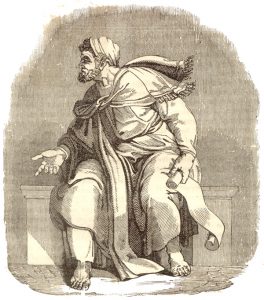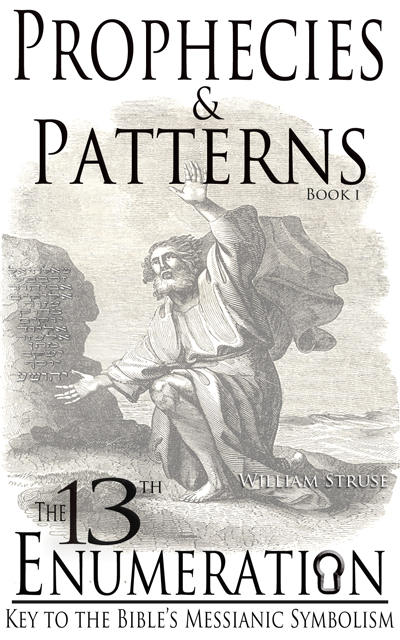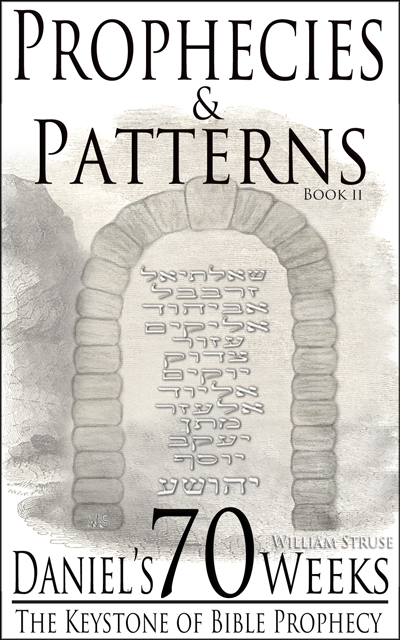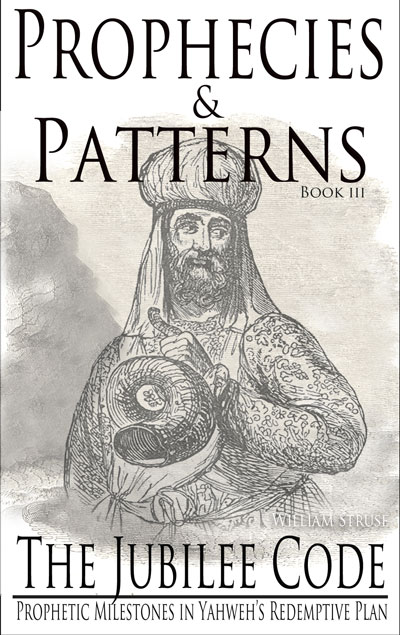 Last week’s post, Gog & Magog in the Millennium looked at a yet future invasion of Israel by Gog & Magog at the end of the millennium. This exploration of the Gog & Magog invasion allowed us to set a basis for comparing it to the Gog & Magog invasion mentioned in Ezekiel 38-39 with the goal in mind of determining whether these two invasions are related.
Last week’s post, Gog & Magog in the Millennium looked at a yet future invasion of Israel by Gog & Magog at the end of the millennium. This exploration of the Gog & Magog invasion allowed us to set a basis for comparing it to the Gog & Magog invasion mentioned in Ezekiel 38-39 with the goal in mind of determining whether these two invasions are related.
I think it only appropriate to once again look at the Biblical text before we dig into the subject. The following is an abridged portion of Ezekiel 38-39. I’d recommend you read all of Ezekiel 34-39 to get the complete contextual basis for Ezekiel’s prophecy:
Son of man, set thy face against Gog, the land of Magog, the chief prince of Meshech and Tubal, and prophesy against him, And say, Thus saith the Lord YHWH; Behold, I am against thee, O Gog, the chief prince of Meshech and Tubal: And I will turn thee back, and put hooks into thy jaws, and I will bring thee forth, and all thine army, horses and horsemen, all of them clothed with all sorts of armour, even a great company with bucklers and shields, all of them handling swords:…
After many days thou shalt be visited: in the latter years thou shalt come into the land that is brought back from the sword, and is gathered out of many people, against the mountains of Israel, which have been always waste: but it is brought forth out of the nations, and they shall dwell safely all of them…
Thus saith the Lord YHWH; It shall also come to pass, that at the same time shall things come into thy mind, and thou shalt think an evil thought: And thou shalt say, I will go up to the land of unwalled villages; I will go to them that are at rest, that dwell safely, all of them dwelling without walls, and having neither bars nor gates, (Ezekiel 38:2-11)
Now let’s look at some of the context found in Ezekiel 38-39. Keep in mind our goal here is to determine if this passage from Ezekiel is related to the Gog & Magog invasion of Israel described in Revelation 20:
-
- Gog and Magog comprises a great army of horsemen with bucklers, shields, swords, & helmets. (Eze. 38:4)
- These events take place in the “latter years”. (achariyth – end, latter, last ) (Eze. 38:8)
- Gog & Magog invades Israel, in the “latter years” when they (Israel) have been gathered from the nations, in a land “brought back from the sword” and at a time when “they shall dwell safely all of them.” (Eze. 38:8)
- Israel is a land of unwalled villages at rest. They dwell “safely” without walls, bars, or gates. (Eze. 38:11)
- Israel’s desolate places are inhabited. (Eze. 38:12)
- Gog & Magog come to take silver, gold, cattle, and goods. (Eze. 38:13)
- Gog & Magog’s armies come “riding on horses”. (Eze. 38:15)
- This takes place in the “latter days” so that the heathen may know YHWH. (Eze. 38:16)
- Gog is the one whom YHWH, through the prophets of Israel, foretold would come against Israel. (Eze. 38:17)
- Gog and his bands will be judged by showers of hailstones, fire, and brimstone. (Eze. 38:22)
- Only 1/6th of Gog and his armies survive.
- Gog’s armies use bows and arrows. (Eze. 39:3)
- YHWH will make His name holy in Israel and the heathen will know that YHWH is the Holy One in Israel (Eze. 39:7)
- After YHWH’s judgement, Israel will burn Gog’s weapons: shields, bucklers, bows, arrows, hand staves, and spears. (Eze. 39:9)
- The weapons will be so numerous they will be burned for 7 years. (Eze. 39:9)
- Israel will not have to cut wood from the field or forest during those 7 years. (Eze. 39:10)
- Gog will have a grave in Israel (Eze. 39:11)
- It will take 7 months to bury the dead (Eze. 39:12)
In last week’s post, Gog & Magog in the Millennium, I quoted Dr. David L. Cooper’s Golden Rule of biblical interpretation. It was my stated purpose to try and filter our exploration of this subject through this principle to see if it clarified our understanding. Dr. Cooper’s rule is worth stating once again:
When the plain sense of Scripture makes common sense, seek no other sense; Therefore, take every word at its primary, ordinary, usual, literal meaning unless the facts of the immediate context, studied in light of related passages and axiomatic and fundamental truths indicate clearly otherwise.
Plain Sense
For those of you who have read the entire passage of Ezekiel 38-39 in a plain “common sense” manner a few things become evident about this Gog & Magog invasion of Israel.
- It takes place in Israel
- The armies of Gog & Magog attack from the four points of the compass
- Israel is living securely in the land when this attack occurs.
- The invaders attack with armies of horsemen
- The weapons of war are rudimentary by today’s standards.
- Fire from YHWH destroys Gog & Magog’s armies
Horses, Chariots, Bows and Arrows
Let’s just be up front about it. By today’s standards Ezekiel 38-39 only makes sense if taken poetically. Armies of the world today do not use horses or chariots. Men of war no longer use shields, swords, bows, and arrows. Israel doesn’t cut wood from the forest for its heating needs. These conditions will likely be present during the Gog & Magog invasion at the end of the Millennium but in no way can we read Ezekiel 38-39 “literally” if these events take place before the millennium.
Israel Dwells Securely in Their Land
Israel’s security in the land is one of the clearest descriptions given by Ezekiel, yet disconcertingly its context is not nailed down by many who teach on the subject. Let’s try to remedy that here by looking at a few of the phrases Ezekiel uses to describe the living conditions when Gog & Magog attack.
- “…They shall dwell [yashab] safely [betach] all of them.” (Ezekiel 38:8)
- “….my people of Israel dwelleth [yashab] safely [betach],” (Ezekiel 38:14)
- “…when they dwelt [yashab] safely [betach] in their land, and none made them afraid.” (Ezekiel 39:26)
Jubilee & Sabbath Cycles are a Blessing
It’s interesting to note that the idea of Israel dwelling securely in their land first comes to us from Leviticus 25:15-16 where Sabbath and jubilee instructions are given. In the following passage from Leviticus, notice Israel is promised a blessings if they keep YHWH’s “statues and judgements”, including the instructions for the Sabbath and Jubilee cycles.
Wherefore ye shall do my statutes, and keep my judgments, and do them; and ye shall dwell [yashab] in the land in safety [betach]. And the land shall yield her fruit, and ye shall eat your fill, and dwell [yashab] therein in safety [betach]. (Leviticus 25:18-19)
I think it is fair to say that the Bible makes it clear that Israel, as a nation, will not live by the statues and judgments of YHWH until Yeshua returns and they acknowledge Him as the Messiah. Leviticus 26:3-5 further confirms the promised blessings.
If ye walk in my statutes, and keep my commandments, and do them; Then I will give you rain in due season, and the land shall yield her increase, and the trees of the field shall yield their fruit [periy]…
…and dwell [yashab] in your land safely [betach]. And I will give peace in the land, and ye shall lie down, and none shall make you afraid [charad]: and I will rid evil beasts out of the land, neither shall the sword go through your land.
…And I will set my tabernacle among you: and my soul shall not abhor you. And I will walk among you, and will be your God, and ye shall be my people. (Leviticus 26:3-12)
Once again Israel dwelling securely in the land is contingent upon their obedience to YHWH’s statutes and commandments. A condition that is not presently met nor will it be until after the tribulation.
Here is what Jeremiah has to say about Israel’s security in the land:
Behold, I will gather them out of all countries, whither I have driven them in mine anger, and in my fury, and in great wrath; and I will bring them again unto this place, and I will cause them to dwell [yashab] safely [betach]:
And they shall be my people, and I will be their God: And I will give them one heart, and one way, that they may fear me for ever, for the good of them, and of their children after them:
And I will make an everlasting covenant with them, that I will not turn away from them, to do them good; but I will put my fear in their hearts, that they shall not depart from me. Yea, I will rejoice over them to do them good, and I will plant them in this land assuredly with my whole heart and with my whole soul. (Jeremiah 32:37-41)
Now you might say okay, Israel dwelling securely in the land as described by Jeremiah is clearly a picture of Yeshua’s millennial reign but that is not what Ezekiel meant when he used the terms. Let’s look and see if this is the case. First let’s turn to Ezekiel 28:
Thus saith the Lord YHWH; When I shall have gathered the house of Israel from the people among whom they are scattered, and shall be sanctified in them in the sight of the heathen, then shall they dwell in their land that I have given to my servant Jacob.
And they shall dwell [yashab] safely [betach] therein, and shall build houses, and plant vineyards; yea, they shall dwell with confidence [betach], when I have executed judgments upon all those that despise them round about them; and they shall know that I am YHWH their God. (Ezekiel 28:25-26)
As you can see Ezekiel’s meaning of dwelling securely is the same as expressed by Jeremiah and it is connected to YHWH’s judgment on the heathen nations who have despised Israel. In other words Israel does not “dwell safely” in the land until after YHWH judges the nations. Here is one final passage from Ezekiel which leaves little doubt about when Israel will dwell safely in the land.
And I will set up one shepherd over them, and he shall feed them, even my servant David; he shall feed them, and he shall be their shepherd. And I YHWH will be their God, and my servant David a prince among them;
I YHWH have spoken it.
I will make with them a covenant of peace, and will cause the evil beasts to cease out of the land: and they shall dwell [yashab] safely [betach] in the wilderness, and sleep in the woods. And I will make them and the places round about my hill a blessing; and I will cause the shower to come down in his season; there shall be showers of blessing.
And the tree of the field shall yield her fruit [periy], and the earth shall yield her increase [yebuwl], and they shall be safe [betach] in their land, and shall know that I am YHWH, when I have broken the bands of their yoke, and delivered them out of the hand of those that served themselves of them. (Ezekiel 34:23-27)
In this passage YHWH through the prophet Ezekiel describes the millennial reign of Christ when David is Israel’s shepherd. In beautiful congruency YHWH reminds the reader that this period of time is a fulfillment of the promise of Leviticus 26 where the “tree of the field shall yield her fruit” (periy) and Israel will be safe (betach) in their land.
But there is more. This passage in Ezekiel 34 also confirms the prophecy in Jeremiah 30:7-10 (see also Jer. 46:27) which speaks of the time of “Jacob’s trouble” followed by YHWH breaking the “yoke” and giving them David to rule over them which results in rest and quite with none to make them afraid.
Alas! for that day is great, so that none is like it: it is even the time of Jacob’s trouble; but he shall be saved out of it. For it shall come to pass in that day, saith YHWH of hosts, that I will break his yoke from off thy neck, and will burst thy bonds, and strangers shall no more serve themselves of him: But they shall serve YHWH their God, and David their king, whom I will raise up unto them.
Therefore fear thou not, O my servant Jacob, saith the LORD; neither be dismayed, O Israel: for, lo, I will save thee from afar, and thy seed from the land of their captivity; and Jacob shall return, and shall be in rest, and be quiet, and none shall make him afraid. (Jeremiah 30:7-10)
Both Ezekiel 34 and Jeremiah 30 show:
- YHWH breaking the yoke of the heathen from Israel
- David as king
- Followed by Israel living in their land in peace without fear
At no point do either texts indicate or even hint that Israel has rest or peace before the reign of David or in the time of “Jacob’s trouble”.
The final passage we will look at in the context of Israel dwelling safely in the land is found in the Zechariah 14. Here take a look:
And it shall be in that day, that living waters shall go out from Jerusalem; half of them toward the former sea, and half of them toward the hinder sea: in summer and in winter shall it be. And YHWH shall be king over all the earth: in that day shall there be one YHWH, and his name one….
And men shall dwell in it, and there shall be no more utter destruction; but Jerusalem shall be safely [betach] inhabited [yashab]. (Zechariah 14:8-11)
Yashab Betach
I would encourage those who care about this subject to pursue each reference to dwelling securely (Yashab Betach) found in the Biblical record. In my opinion it is a worthy and fruitful line of investigation. For those who might be concerned that I cherry picked my references, here are all the references I could find for yashab betach used together in the Bible. (Lev 25:18f; 26:5; Deut 12:10; Judg 18:7; 1 Sam 12:11; 1 Kgs 4:25; Ps 4:8; Prov 3:29; Isa 47:8; Jer 32:37; 49:31; Ezek 28:26; 34:25, 28; 38:8, 11, 14; 39:6, 26; Zeph 2:15; Zech 14:11) I think you’ll find it compelling like I did.
The sum of this line if investigation shows that Israel dwelling securely in the land (yashab betach), as used by Ezekiel, is a reference which has the millennium in mind. Further, in the contextual framework outside of Ezekiel the Biblical prophets also used yashab betach in a similar sense.
Case Close? Not so Fast.
If the facts we have presented so far were the only consideration in the discussion then yes, I would say a pre-millennial basis for Gog & Magog is without any reasonable merit. Clearly the context of Ezekiel’s description of Israel dwelling securely in the land during the millennium is a formidable obstacle but there is a challenging passage in Ezekiel 39 which those who hold a post-millennial view of Gog & Magog must address. Let’s look at that now:
And I will set my glory among the heathen, and all the heathen shall see my judgment that I have executed, and my hand that I have laid upon them. So the house of Israel shall know that I am YHWH their God from that day and forward. And the heathen shall know that the house of Israel went into captivity for their iniquity: because they trespassed against me, therefore hid I my face from them, and gave them into the hand of their enemies: so fell they all by the sword. According to their uncleanness and according to their transgressions have I done unto them, and hid my face from them.
Therefore thus saith the Lord YHWH; Now will I bring again the captivity of Jacob, and have mercy upon the whole house of Israel, and will be jealous for my holy name; After that they have borne their shame, and all their trespasses whereby they have trespassed against me, when they dwelt [yashab] safely [betach] in their land, and none made them afraid [charad].
When I have brought them again from the people, and gathered them out of their enemies’ lands, and am sanctified in them in the sight of many nations; Then shall they know that I am YHWH their God, which caused them to be led into captivity among the heathen: but I have gathered them unto their own land, and have left none of them any more there. Neither will I hide my face any more from them: for I have poured out my spirit upon the house of Israel, saith the Lord YHWH. (Ezekiel 39:21-29)
Frankly, to me this is a challenging passage. It has elements of both a pre-millennial and millennial frame of reference. Those who hold a pre-millennial view of Gog & Magog rightly point to the parts of this passage with appear to be describing Israel before the millennial reign of Christ.
Then right in the center of this passage there is this:
After that they have borne their shame, and all their trespasses whereby they have trespassed against me, when they dwelt [yashab] safely [betach] in their land, and none made them afraid. (Ezekiel 39:26)
Is this saying that Israel was trespassing against YHWH when they “dwelt safely in the land, and none made them afraid”? Or is it saying that Israel’s sins which they committed in the centuries leading up to the 2nd coming will be “borne” (forgotten?) during the millennial reign of Yeshua?
The more I consider this passage I can’t help but wondered if Ezekiel 39:21-29 is a panoramic overview which summarizes Ezekiel’s visions from chapter 34 onwards, i.e. Israel’s apostasy, their judgement during the tribulation, Yeshua 2nd coming, their final and complete restoration, and the resulting peace and security during the millennium. What do you think?
Dwelt safely in their land, and None Made them Afraid
What really tips the scale in regards to this verse, (for me anyway) is Ezekiel’s usage of the phrase “dwelt safely in their land, and none made them afraid” as quoted above in Ezekiel 39:26. Did you know this exact phrase is used one other place in the Biblical record? And yes it is used by Ezekiel in a millennial context.
It’s also worth noting that a similar but not exact rendering of this is found in Jeremiah 30:7-10. Here are all three together.
And I will set up one shepherd over them, and he shall feed them, even my servant David; he shall feed them, and he shall be their shepherd. And I YHWH will be their God, and my servant David a prince among them; I YHWH have spoken it.
And I will make with them a covenant of peace, and will cause the evil beasts to cease out of the land: and they shall dwell [yashab] safely [betach] in the wilderness, and sleep in the woods.
And they shall no more be a prey to the heathen, neither shall the beast of the land devour them; but they shall dwell [yashab] safely [betach] and none shall make them afraid [charad]. (Ezekiel 34:23-25)
* * *
Therefore thus saith the Lord YHWH; Now will I bring again the captivity of Jacob, and have mercy upon the whole house of Israel, and will be jealous for my holy name;
After that they have borne their shame, and all their trespasses whereby they have trespassed against me, when they dwelt [yashab] safely [betach] in their land, and none made them afraid [charad]. (Ezekiel 39:25-26)
* * *
Alas! for that day is great, so that none is like it: it is even the time of Jacob’s trouble; but he shall be saved out of it. For it shall come to pass in that day, saith YHWH of hosts, that I will break his yoke from off thy neck, and will burst thy bonds, and strangers shall no more serve themselves of him: But they shall serve YHWH their God, and David their king, whom I will raise up unto them.
Therefore fear thou not, O my servant Jacob, saith the LORD; neither be dismayed, O Israel: for, lo, I will save thee from afar, and thy seed from the land of their captivity; and Jacob shall return, and shall be in rest, and be quiet, and none shall make him afraid [charad]. (Jeremiah 30:7-10)
Whatever we want to say about the rest of Ezekiel 39:21-29 verse 26 by the most reasonable interpretive method requires us to consider it within the context of Ezekiel 34:23-25, Jeremiah 30, and millennium. Trying to sever Ezekiel 39:26 from this context removes any basis for understanding the verse in a larger biblical context. For those who would like to pursue this further these additional references to a time when Israel has “none to make them afraid” will be useful. (Jer. 30:10-24; Jer. 46:27-28; Micah 4:4; Zep 3:8-20)
Gog & Magog in the Latter Years
I had hoped to wrap up this look at Gog & Magog with this article but due to the constraints of time I’ll have to finish it in my next post. In the mean time I hope this article has given you something to consider and further inspired you to dig into YHWH’s word to see if these things be so.
In my final article we will look at:
- The “Latter Years” of Ezekiel 38 and Deuteronomy 11
- A land “returned from the sword”
- Gog & Magog and the Jubilee cycles of the Millennium
I look forward to continuing the adventure with you.
Here is a link to:
Part I Gog and Magog in the Millennium
Part III Gog and Magog in the Latter Years
* * *




Ezekiel 28 The house of Israel, are the 10 lost tribes, Judah are the 2 tribes that returned. The house of Israel never returned. They were scattered among the nations! Matthew 15:24 “I was sent only to the lost sheep of the house of Israel.”
Pingback: Gog & Magog in the Millennium | The 13th Enumeration
Simply a blessing and outstanding work.
May God keep you and refresh you.
Keep up the great work.
Be strong and courageous!
Thank you for pointing to these solid columns supporting this unshakable truth concerning the time of Gog and Magog. It has troubled me over recent years that so many have denied what is in plain sight
Yours in Christ,
Mark
Most welcome, Mark.
Regards,
William